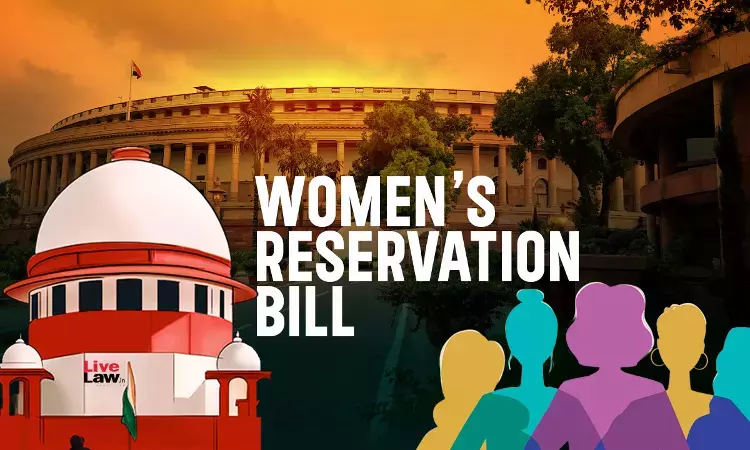Difficult For Court To Order Immediate Implementation Of Women's Reservation, Says Supreme Court
Awstika Das
3 Nov 2023 1:36 PM IST

Next Story
3 Nov 2023 1:36 PM IST
The Supreme Court on Friday (November 3) expressed its reservations about directing the union government to immediately implement before the 2024 general elections, the Constitution (One Hundred and Sixth Amendment) Act, 2023, which proposes to introduce women’s reservation in the Lok Sabha, the upper houses of the state legislatures, and the Delhi legislative assembly. Although...
